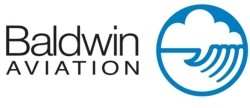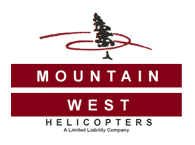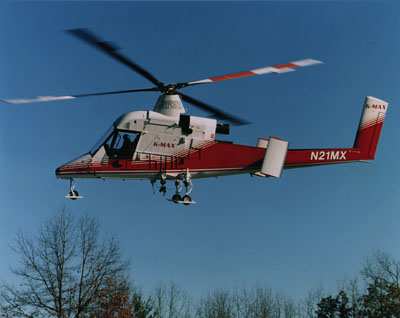Companies Collaborate To Qualify For HAI Safety
Accreditation
 Mountain West Helicopters and Hilton Head South Carolina-based
Baldwin Aviation announced Monday that they are collaborating on
obtaining IS-BAO registration for the Alpine, Utah flight
operation. The application is being made under a new program
launched recently by the Helicopter Association International (HAI)
and the International Business Aircraft Council (IBAC). Guidelines
for the accreditation program were proposed by the two
organizations at the annual Heli-Expo in February. The helicopter
safety accreditation program will follow the precedent introduced
by IBAC in 2002, the International Standard for Business Aviation
Operations (IS-BAO). Applicants for accreditation can begin
applying in June, HAI said.
Mountain West Helicopters and Hilton Head South Carolina-based
Baldwin Aviation announced Monday that they are collaborating on
obtaining IS-BAO registration for the Alpine, Utah flight
operation. The application is being made under a new program
launched recently by the Helicopter Association International (HAI)
and the International Business Aircraft Council (IBAC). Guidelines
for the accreditation program were proposed by the two
organizations at the annual Heli-Expo in February. The helicopter
safety accreditation program will follow the precedent introduced
by IBAC in 2002, the International Standard for Business Aviation
Operations (IS-BAO). Applicants for accreditation can begin
applying in June, HAI said.
"We are very pleased to be working with Baldwin Aviation on
IS-BAO registration," said Bryan Burr, President of Mountain West
Helicopters. "We consider it an honor to be the first helicopter
operators to do so and this is a very practical consideration for
us, too, since IS-BAO certification will lend even more credibility
and strength to our commitment to managing risk appropriately and
providing the safest and most reliable operations possible. We are
heavily involved in government contracting...fire suppression, post
fire reclamation, remote area aerial construction, and other
demanding helicopter operations. That means operating in highly
varied terrain, at low airspeeds with heavy external loads-not
going straight and level for three hours from one airport to
another-so we feel it's imperative to have a well-defined,
industry-leading safety and risk management system in place.
Baldwin Aviation provides us with the expertise and tailored
approach that we need to meet the IS-BAO standards," Burr
added.
 Mountain West Helicopters flies the very first Kaman K1200 KMAX
helicopter sold to a commercial operator, acquiring it new in 1995.
They have accumulated more than 20,000 hours on the airframe,
primarily in fire fighting and timber harvesting operations
throughout the Intermountain West. They have also flown operations
on both coasts. They currently have aircraft based in Hamilton and
Bozeman, Montana, as well.
Mountain West Helicopters flies the very first Kaman K1200 KMAX
helicopter sold to a commercial operator, acquiring it new in 1995.
They have accumulated more than 20,000 hours on the airframe,
primarily in fire fighting and timber harvesting operations
throughout the Intermountain West. They have also flown operations
on both coasts. They currently have aircraft based in Hamilton and
Bozeman, Montana, as well.
"We don't need to wait until June to begin assisting operators
in the development of Safety Management Systems, or creating
programs that will meet IS-BAO standards," said Don Baldwin, CEO
and founder of Baldwin Aviation. "We already have an established
reputation for developing tools to help helicopter and fixed wing
flight organizations keep track of the myriad of requirements that
are part of managing a safe and efficient operation.
Baldwin explained that "IS-BAO establishes a code of best
practices which essentially structures ISO 9000 principles to apply
to aviation safety. It is a continuous improvement program that
prescribes an audit every two years and stimulates an ongoing
self-audit program to ensure currency and relevance."

KMAX Helicopter File Photo
"HAI and IBAC indicated that they are willing to 'tie in' their
accreditation program with existing audit programs, " Baldwin
noted. "That means that HAI safety accreditation will conform to
the ICAO framework and future Federal Aviation Administration (FAA)
regulations. Obviously, obtaining HAI registration will be a
benefit. There are also other practical benefits of proactive
safety management--and they can be measured in time savings,
increased operational efficiency-and dollars. Insurance companies
often acknowledge the benefits of a well-defined program by
reducing their rates for operators. Consistent monitoring of
procedures and overall management of operations usually translate
into competitive advantages, too," he stated.
 ANN's Daily Aero-Term (04.24.24): Runway Lead-in Light System
ANN's Daily Aero-Term (04.24.24): Runway Lead-in Light System ANN's Daily Aero-Linx (04.24.24)
ANN's Daily Aero-Linx (04.24.24) Aero-FAQ: Dave Juwel's Aviation Marketing Stories -- ITBOA BNITBOB
Aero-FAQ: Dave Juwel's Aviation Marketing Stories -- ITBOA BNITBOB Classic Aero-TV: Best Seat in The House -- 'Inside' The AeroShell Aerobatic Team
Classic Aero-TV: Best Seat in The House -- 'Inside' The AeroShell Aerobatic Team Airborne Affordable Flyers 04.18.24: CarbonCub UL, Fisher, Affordable Flyer Expo
Airborne Affordable Flyers 04.18.24: CarbonCub UL, Fisher, Affordable Flyer Expo





